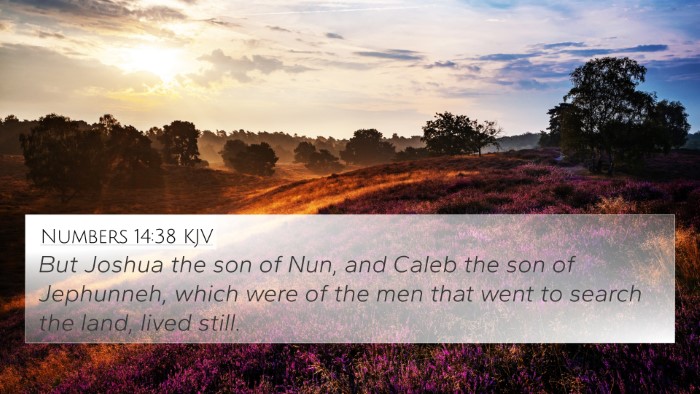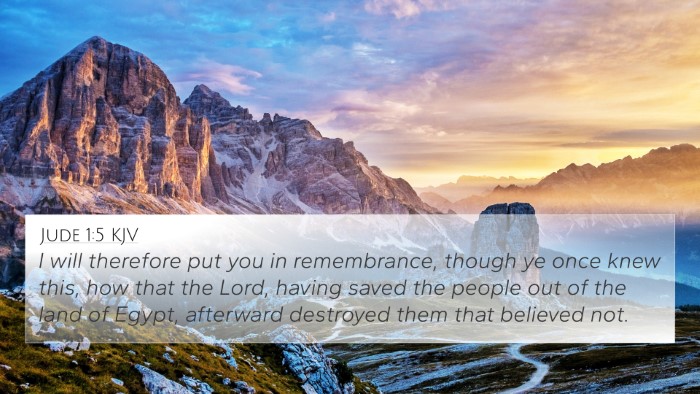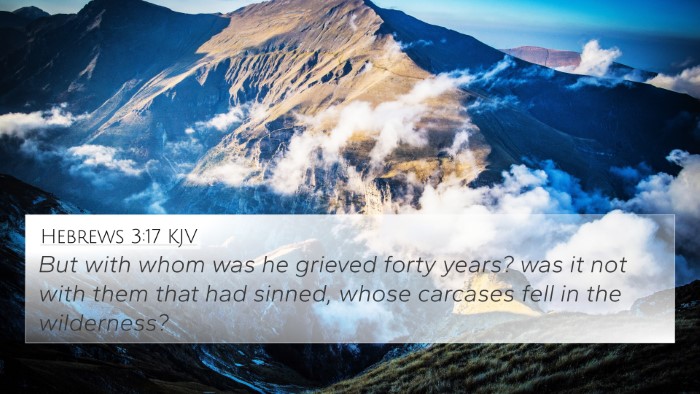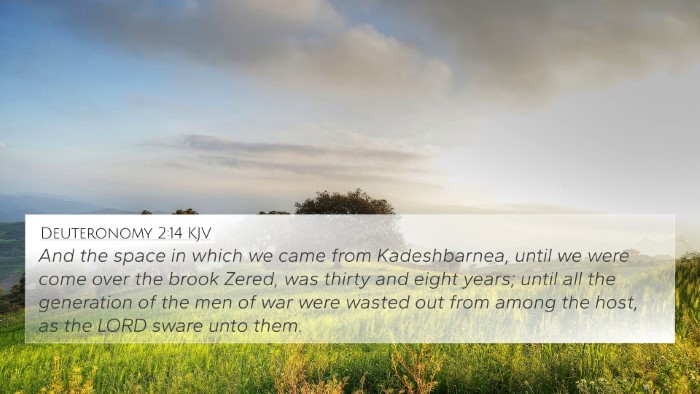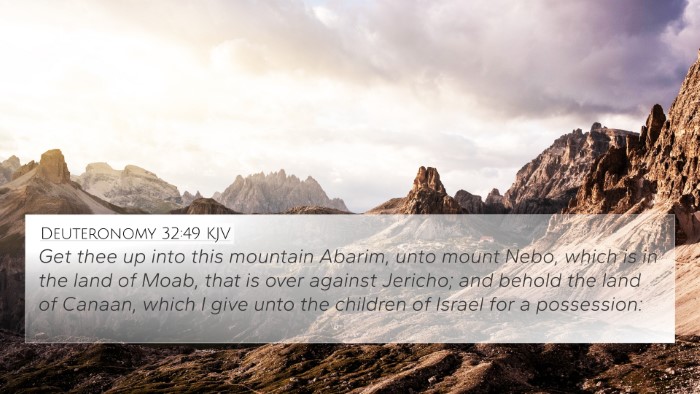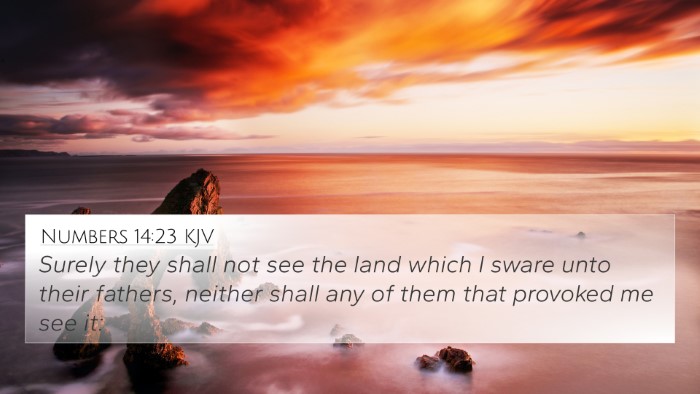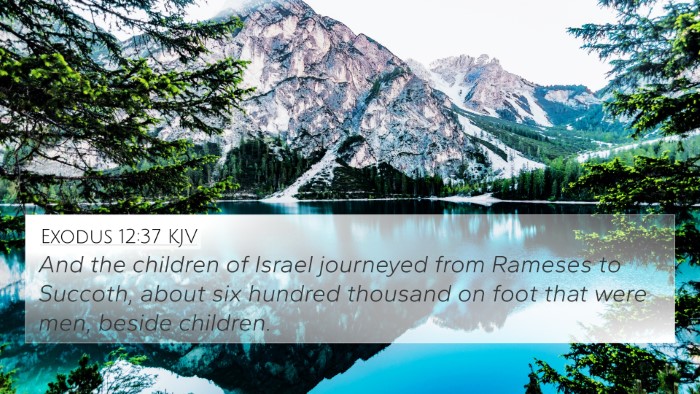Understanding Numbers 26:65
The verse Numbers 26:65 states:
"For the Lord had said of them, They shall surely die in the wilderness. And there was not left a man of them, save Caleb the son of Jephunneh, and Joshua the son of Nun."
Summary of Meaning
This poignant verse captures the Lord's decree regarding the Israelites who failed to enter the Promised Land due to their disobedience and lack of faith. The significant takeaway is the consequence of rebellion against God and the assurance that only Caleb and Joshua, who remained faithful, would enter the land. This moment encapsulates a turning point in Israel's journey and emphasizes God's justice alongside His faithfulness to those who uphold their trust in Him.
Insights from Commentaries
Matthew Henry's Commentary
Matthew Henry emphasizes that this verse highlights the seriousness of God's judgment. He explains that the people who doubted God's promise were destined to perish in the wilderness, which serves as a dire warning about the consequences of disbelief. Henry notes that Caleb and Joshua’s faithfulness is rewarded by God’s providence, making them exceptional among their peers.
Albert Barnes' Commentary
Albert Barnes reflects on the solemnity of the pronouncement made by the Lord, underscoring that the Israelites had indeed provoked God’s wrath through their lack of faith. He points out that their deaths in the wilderness were a sign of God's unwavering justice. Furthermore, Barnes underscores that the mention of Caleb and Joshua serves to highlight that God has a remnant that remains faithful even amidst widespread disbelief.
Adam Clarke's Commentary
Adam Clarke delves into the historical context of this proclamation, indicating that it symbolized a fresh beginning for Israel. He remarks that the deaths of the doubters created a clean slate for the new generation, which could learn from the mistakes of their forebears. Clarke acknowledges the significance of Caleb and Joshua being the exceptions, representing hope and faithfulness amid judgment.
Related Bible Cross References
- Numbers 14:29-30: This passage reflects the pronouncement of death for those who rebelled against God.
- Hebrews 3:17: Connects the disobedient generation in the wilderness with God's judgment on them.
- Deuteronomy 1:35-36: The Lord's reaffirmation that none of the initial skeptics would see the Promised Land except Caleb.
- Ezekiel 18:30: A call to repentance, emphasizing that God desires the soul to turn from sin, resonating with the need for faithfulness.
- Matthew 23:37: Illustrates Jesus' lament over unbelieving Jerusalem, echoing God’s frustration with His people.
- 2 Timothy 2:12: Speaks to the reward of faithfulness, aligning with Caleb and Joshua's eventual entry into the Promised Land.
- Romans 11:5: Discusses a remnant of Israel who remained faithful, akin to Caleb and Joshua's steadfastness.
Linking Themes Across Scriptures
The thematic connections highlighted in Numbers 26:65 resonate throughout both the Old and New Testaments. The narrative sets the stage for key theological themes like judgment, faithfulness, and the consequences of disbelief. By understanding such connections, one can grasp a more profound insight into the nature of God and His dealings with humanity.
How to Study Cross-References
For those interested in Bible cross-referencing, several tools and methods can enhance your study:
- Utilize a Bible concordance for finding verses related to specific themes or words.
- Employ a Bible cross-reference guide to explore connections across Scriptures.
- Engage in cross-reference Bible study methods, focusing on comparative analysis between related verses.
- Leverage Bible reference resources available in study Bibles, which often contain cross-references prominently.
Conclusion
Numbers 26:65 serves as a critical reminder of the importance of faithfulness and the impact of our choices in our relationship with God. By examining this verse through various lenses and commentaries, we can enhance our understanding and recognition of God's profound justice and mercy. Engaging in cross-referencing Bible studies can reveal deeper insights, allowing for a richer faith journey.



